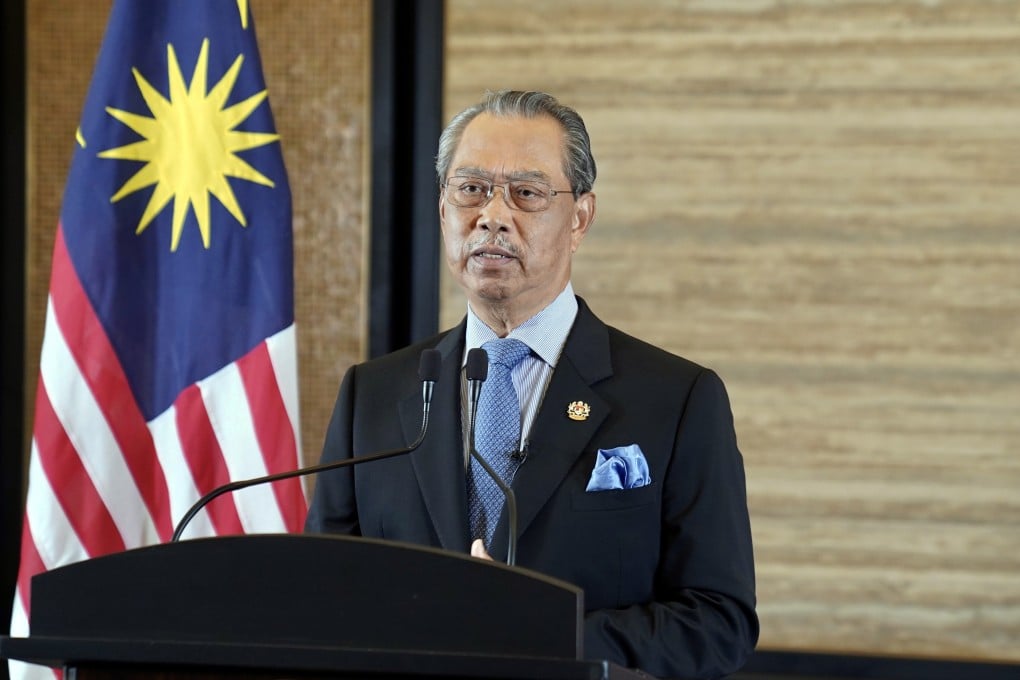In Malaysia, power struggles, pandemic woes mar Muhyiddin’s first year in office
- The embattled leader has promised to hold elections after the Covid-19 pandemic is under control
- He could now face a fresh no-confidence vote as soon as June, but observers say he is unlikely to be ousted unless his political opponents unify

The embattled leader, speaking in a televised address to mark his first year in power, focused on summing up the government’s achievements and pointedly avoided reference to the power struggle that had dominated his time in office. In the past year, he has fended off challenges from rivals while working to consolidate support from coalition members amid internal bickering.
Muhyiddin said he would advise the nation’s king Sultan Abdullah to dissolve Parliament once the pandemic was over.
“Until such time, my colleagues in Cabinet and I will continue to carry out our duties and responsibilities to the best of our ability. When the election is held, of course, we will leave it to the people to decide whether [this] government should be re-elected or otherwise. You are free to choose and that is what democracy is all about.”
“Ultimately, as the government’s future is uncertain, pursuing short term personal benefits – including through illegal means – may be more rational for ministers and bureaucrats than thinking of long term national interests,” said political scientist Wong Chin Huat of Malaysia’s Sunway University.